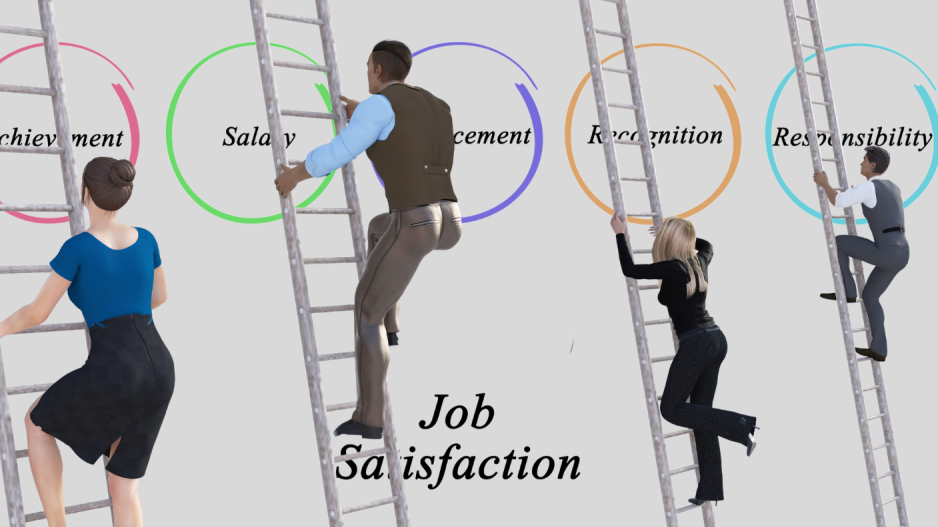8 Reasons We Feel Job Dissatisfaction and How to Overcome It
Dissatisfaction Can Arise From Many Factors, Such as a Negative Work Environment, Poor Management, Lack of Recognition, and Low Salaries
Job dissatisfaction negatively impacts your organization's performance. But how do you spot the signs of job dissatisfaction, and how can you overcome its causes in your workplace?
Job dissatisfaction occurs when employees' expectations about their work are not met, leaving them with a negative perception and a lack of motivation and commitment to their job and the organization. This, in turn, affects the organization's performance and, ultimately, its bottom line. Dissatisfaction can arise from many factors, such as a negative work environment, poor management, lack of recognition, and low salaries.
There are many behaviors that employees may exhibit when they are dissatisfied with their jobs. Some of the typical indicators include:
-
Lack of interest and enthusiasm
-
Procrastination
-
Delays and absenteeism
-
Reduced performance
-
Stress and negativity
The reasons for job dissatisfaction are numerous. However, if you address potential sources with corrective actions, you can work to prevent the problem entirely. Being vigilant and seeking solutions for the following factors of job dissatisfaction will help your organization create a satisfying work environment:
1. Lack of Appreciation
Every human being has an inherent desire to feel appreciated both in personal and professional life. Feeling appreciated at work goes beyond simple recognition of performance. People want to believe they are valued as employees and colleagues because they are appreciated for who they are as individuals. Without knowing that their presence matters, they may lose their sense of purpose within the organization and become dissatisfied with their job. A Glassdoor survey showed that 53% of employees believe that receiving more appreciation from their boss would make them stay longer with their employer.
2. Being or Feeling Underpaid
While the rate of pay alone does not guarantee satisfaction, believing that you are inadequately compensated can contribute to job dissatisfaction. If an employee feels that their salary does not match the performance of their work, they will feel undervalued. They may also blame their job for any financial difficulties they face. A new opportunity with higher pay can easily tempt someone to leave their current job. Does your organization offer competitive salaries that are at least at the market level? If not, it's time to propose a new pay structure and consider salary increases. Design a salary and benefits strategy that offers performance bonuses and promotions to support the career paths of employees. If your organization is not in a position to increase salaries, you could look for creative ways to reward employees, such as:
-
Performance-linked bonuses and profitability
-
Employee discounts for your product or service
-
Flexible working days/hours
-
Additional leave
3. Inadequate Management
The relationship employees have with management significantly contributes to how they feel about their jobs. When employees dislike the way they are supervised or do not trust their managers, their commitment begins to wane. They are less likely to be satisfied with their roles and may even become dissenting. Managers with poor leadership skills can harm your business's success. People want to be led with clear instructions. Uncertainty and lack of direction are often sources of frustration in the workplace. Conversely, employees inspired by their leaders are more invested in their work. This can be reversed by:
-
Setting clear short-term and long-term goals with instructions for meeting expectations.
-
Exercising and promoting open, inclusive communication and transparency in information.
-
Providing consistent, individual feedback emphasizing positive attributes and guiding deficient areas.
-
Offering autonomy and trust to employees while refraining from micromanagement.
4. Limited Career Development Prospects
The hope for career advancement is in the work ambitions of most people. Interest in a current job will increase when the company offers some opportunities to aspire to. On the other hand, when employees see that their development opportunities stop or disappear, it can promote job dissatisfaction. Employees feel empowered when their employer demonstrates a favorable environment for professional development and success. Managers should spend time with their staff, especially to learn what each individual envisions for their career. Within your organization, you can enhance career progression by providing the following types of opportunities:
-
Internal mobility
-
Training and development offers
-
Mentorship programs
5. Lack of Training and Development Options
Many people purposefully seek employment in a company willing to invest in learning and developing its employees. Helping staff develop can motivate them to perform better in their jobs and commit more to the organization. Additionally, feeling encouraged and prepared for professional advancement can help employees feel more satisfied with their current roles. Successful companies understand the value of a training and development plan, therefore allocate the necessary resources. For example, you might see the need for more training in your organization, but a generous budget is not feasible. In this case, there are methods for employee development that do not require significant capital, such as:
-
Online learning
-
Peer learning
-
Cross-training
-
Job shadowing
6. Workplace Relationships:
The correlation between workplace relationships and employee satisfaction cannot be overstated. Even if the job itself is not ideal, a tight-knit team can make people happy to come to work. On the other hand, a toxic work environment can ruin an otherwise satisfying job. Colleagues do not need to be best friends, but they should at least be relaxed and comfortable with each other. Take a careful look at the culture of your workplace to identify potential improvements, especially if employees are complaining. For example, do managers address tensions between staff members? Must rude or intimidating behavior of an employee towards others be addressed? Team-building activities or scheduling time to play games and simply hang out can encourage employees to bond, find common ground, and create reliable, positive relationships.
7. Work-Life Balance
Full-time employees spend most of their day at work, but everyone needs time to focus on family, friends, hobbies, and other responsibilities. Employees may feel overwhelmed if there is no clear distinction between their professional and personal lives. If your organization does not recognize how important it is for employees to maintain a healthy balance between work and personal life, you will face burnout and low job satisfaction. Showing people that the business cares enough to prioritize their well-being significantly contributes to preventing employee dissatisfaction. Try these ideas that can better serve your staff's life outside of work:
-
Limit expectations for overtime
-
Ask for volunteers before assigning travel, holiday work, and special tasks
-
Provide consistency with a stable schedule for hourly employees
-
Offer people options with flexible hours and remote work choices
Creating a supportive workplace culture extends beyond fostering positive relationships and work-life balance. Providing employees with access to resources that enhance their well-being, such as health and wellness tools, can have a significant impact. For instance, offering guidance on topics like how to buy online Jardiance 10 mg or other essential medications can demonstrate a commitment to their overall health. This approach not only reduces stress related to managing personal health but also builds trust in the organization. When employees feel supported both personally and professionally, they are more likely to remain engaged and satisfied in their roles.
8. Uninteresting or Insignificant Work
People seek work that is inspiring and satisfying. They can easily lose interest in a job they believe is not challenging enough or does not contribute significantly. Tedious tasks are often factors of job dissatisfaction. When technology can help streamline or modernize file keeping and other processes, it reduces the time employees must spend on tedious work tasks. This leaves more room for work that employees feel is worthwhile. Renewing certain positions is another solution. When applying job design strategies, such as job enrichment and job rotation, and using the job characteristics model, it is possible to create innovative roles that support business goals and satisfy employees. A sense of pride is instilled when employees believe they are personally responsible for contributing to the organization in a meaningful way.






